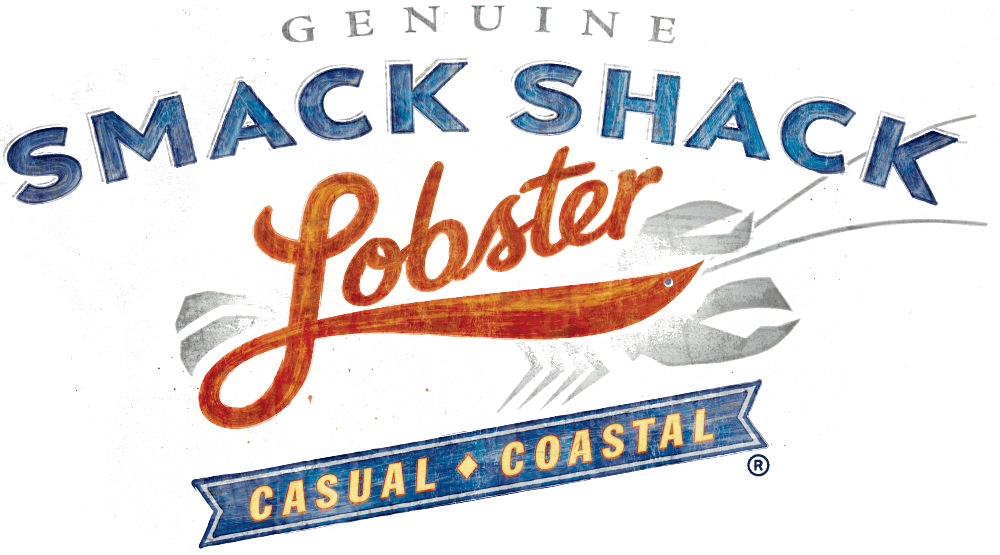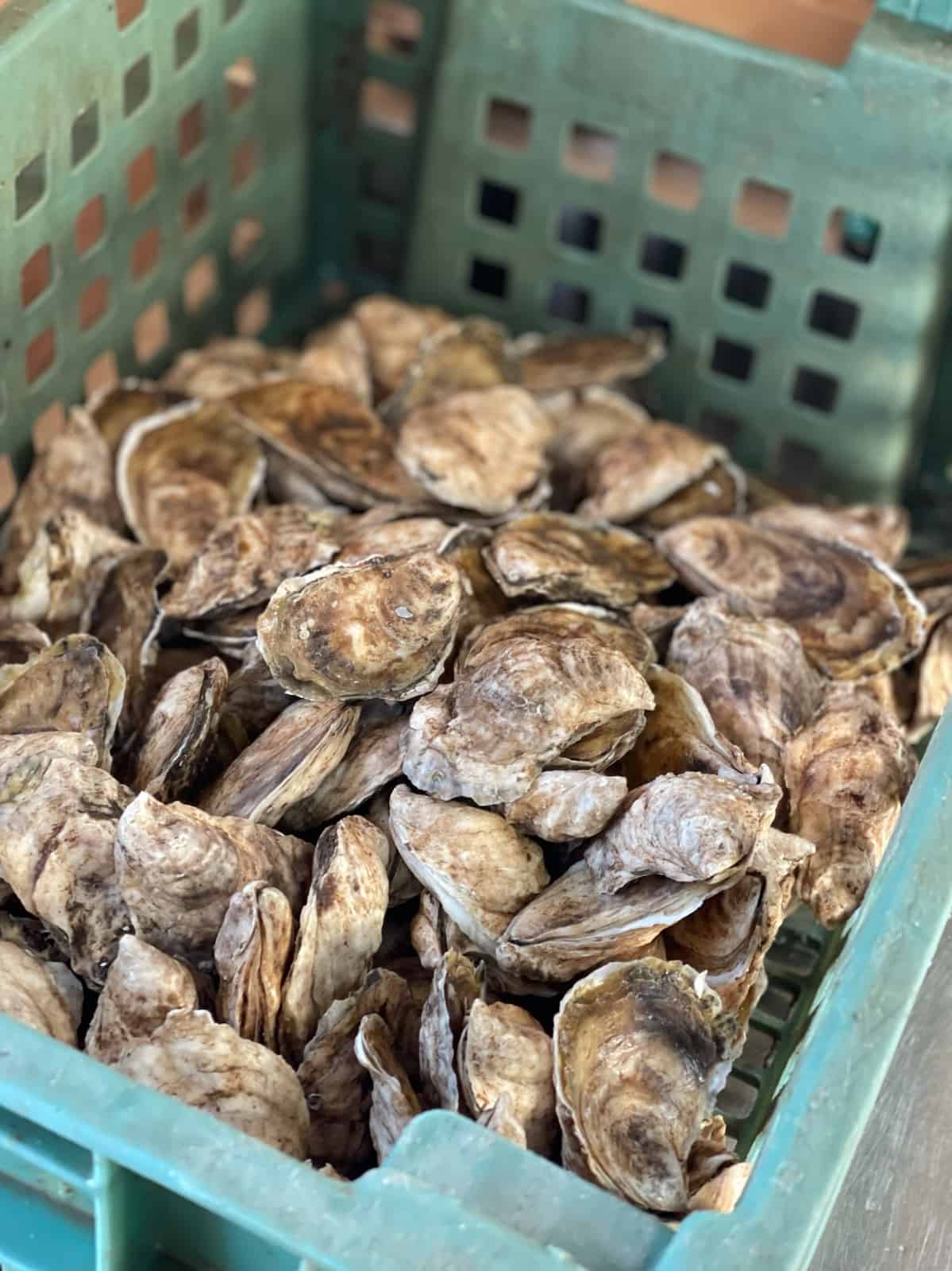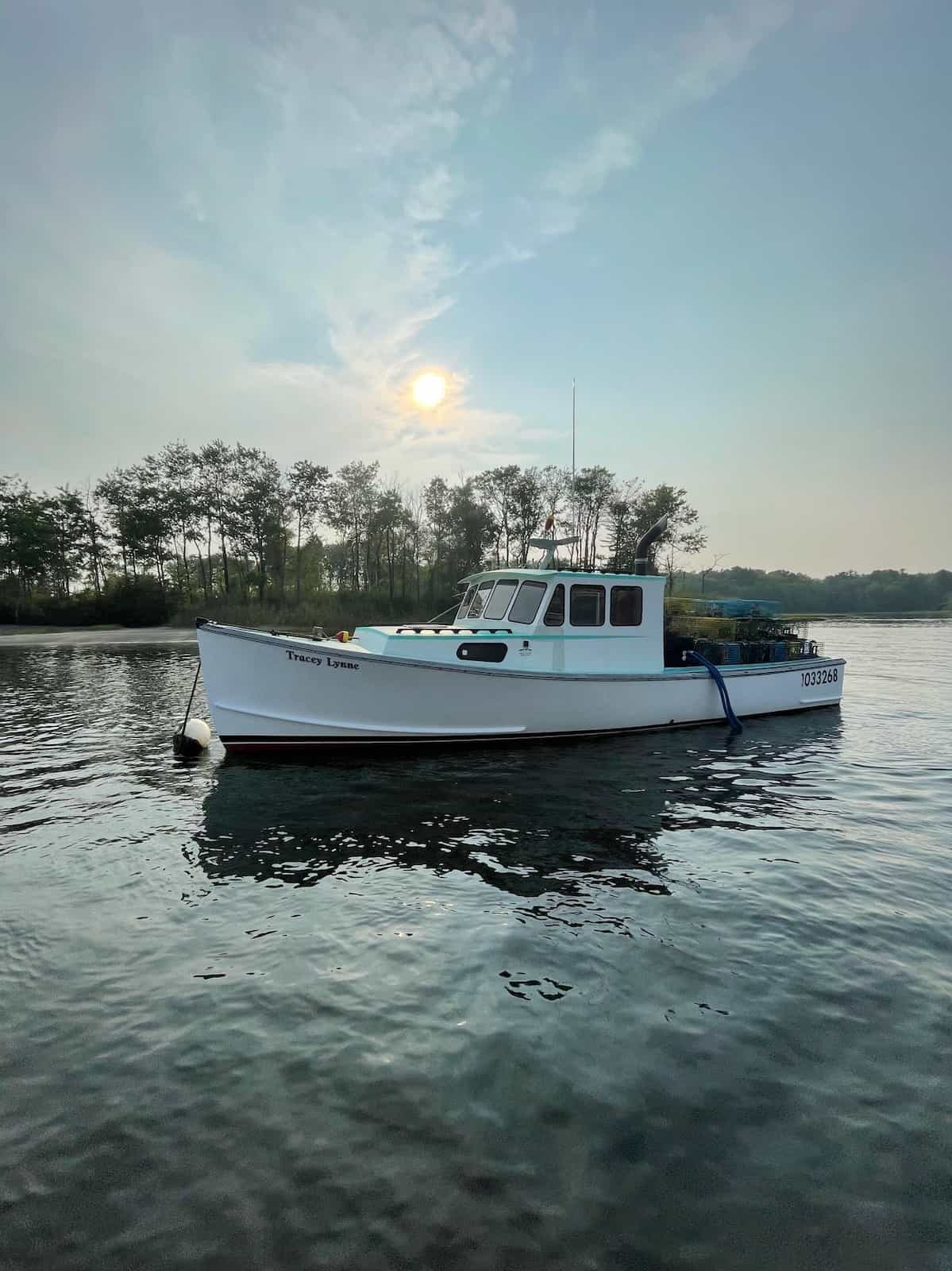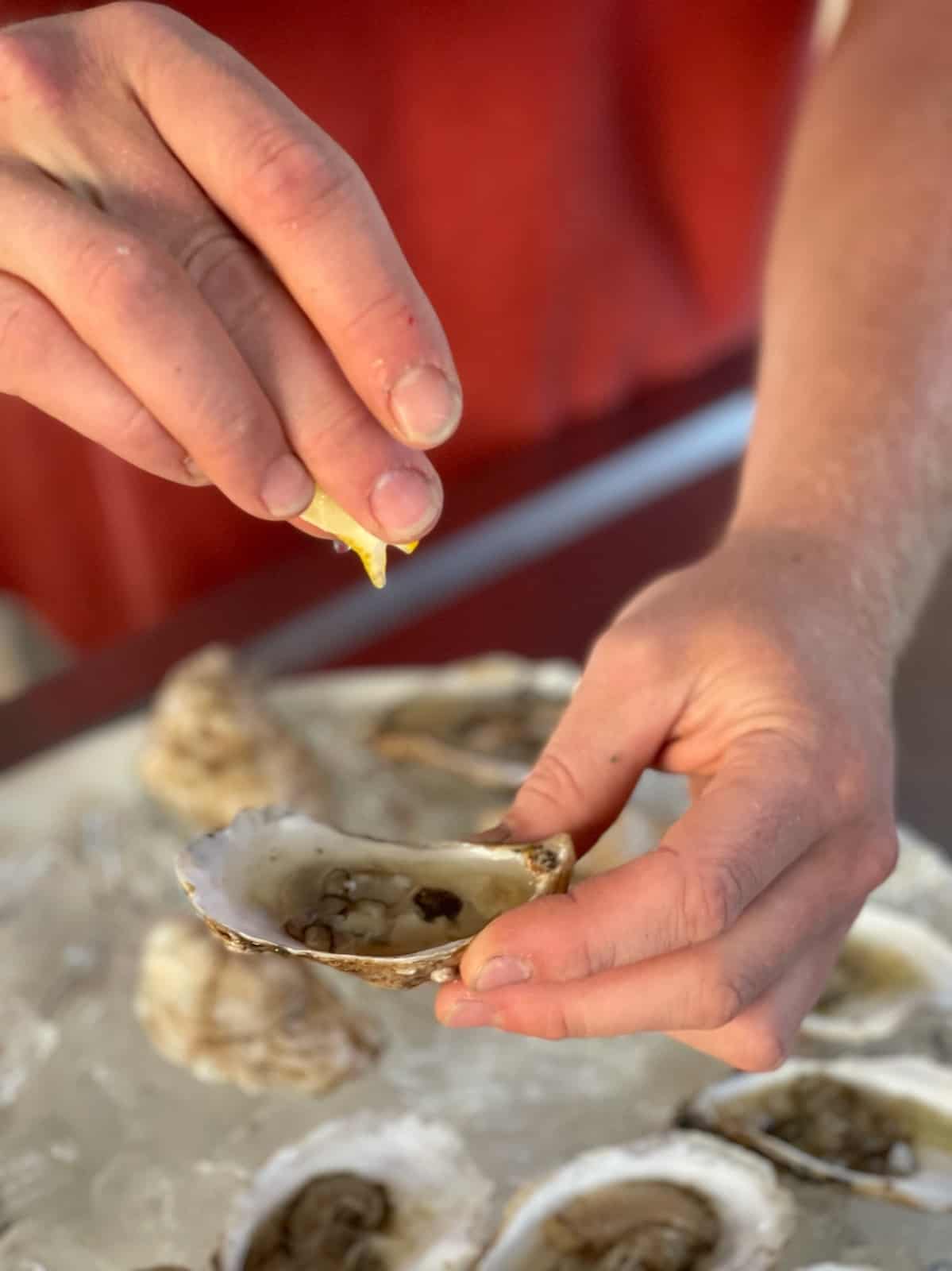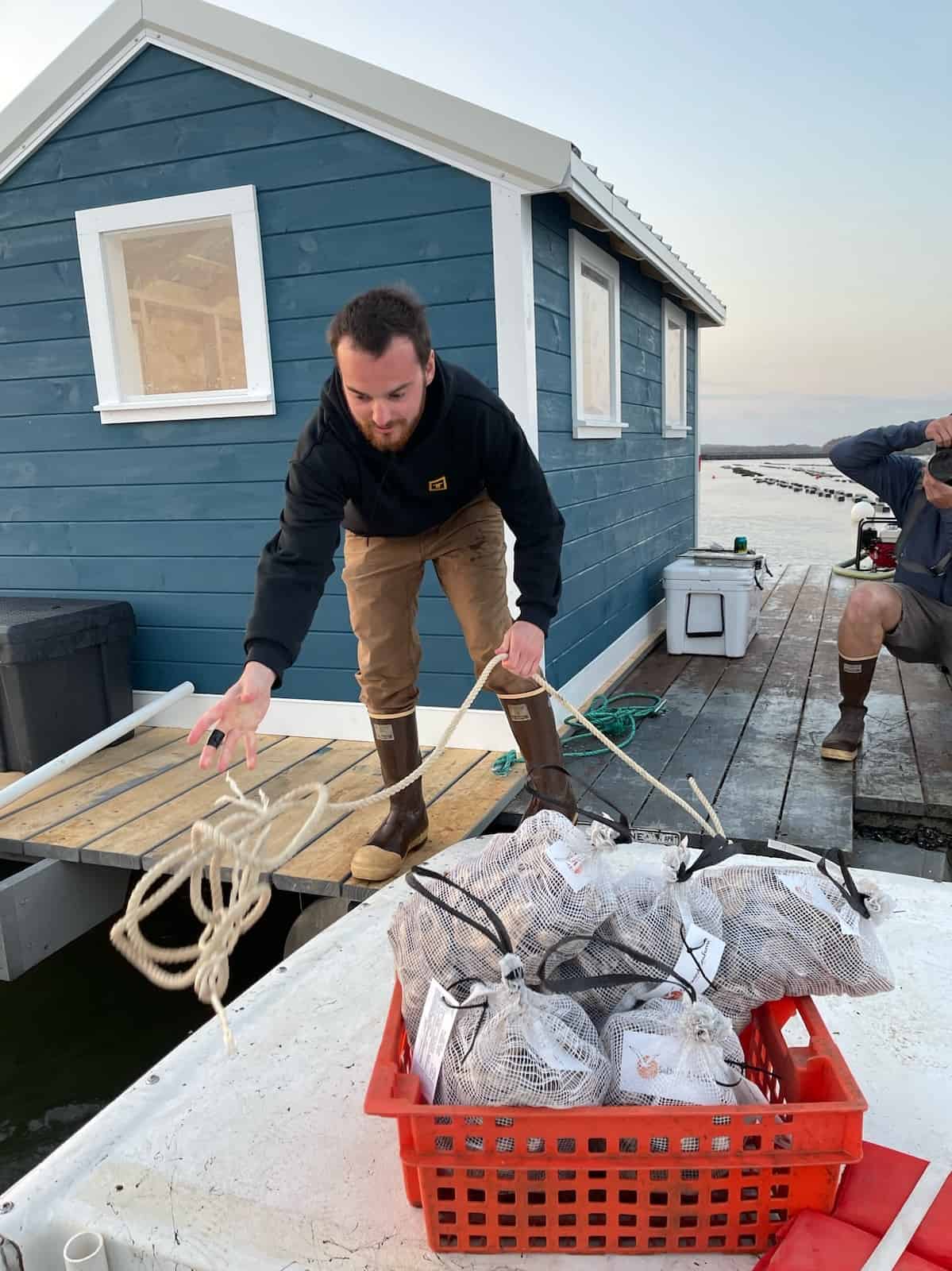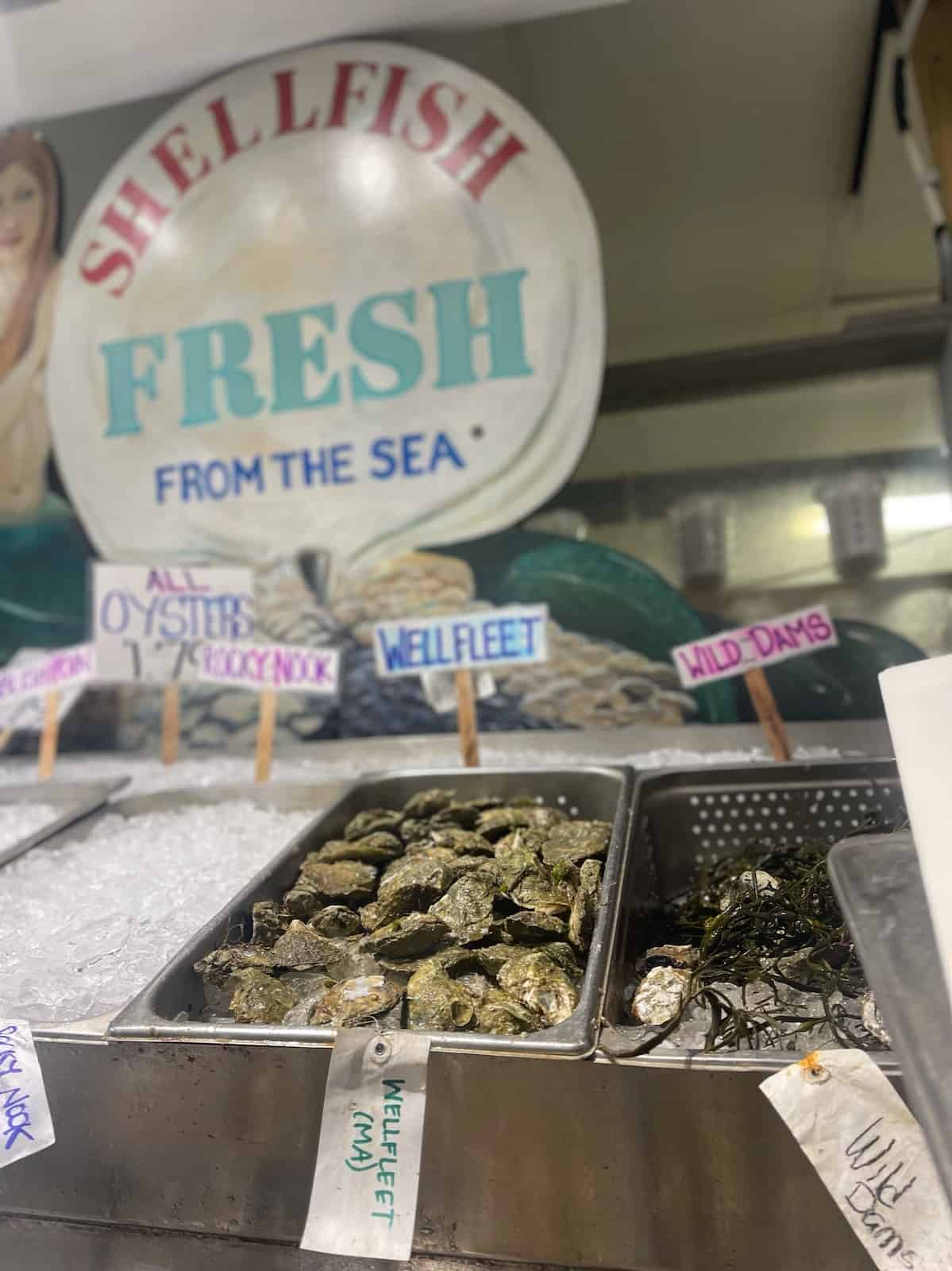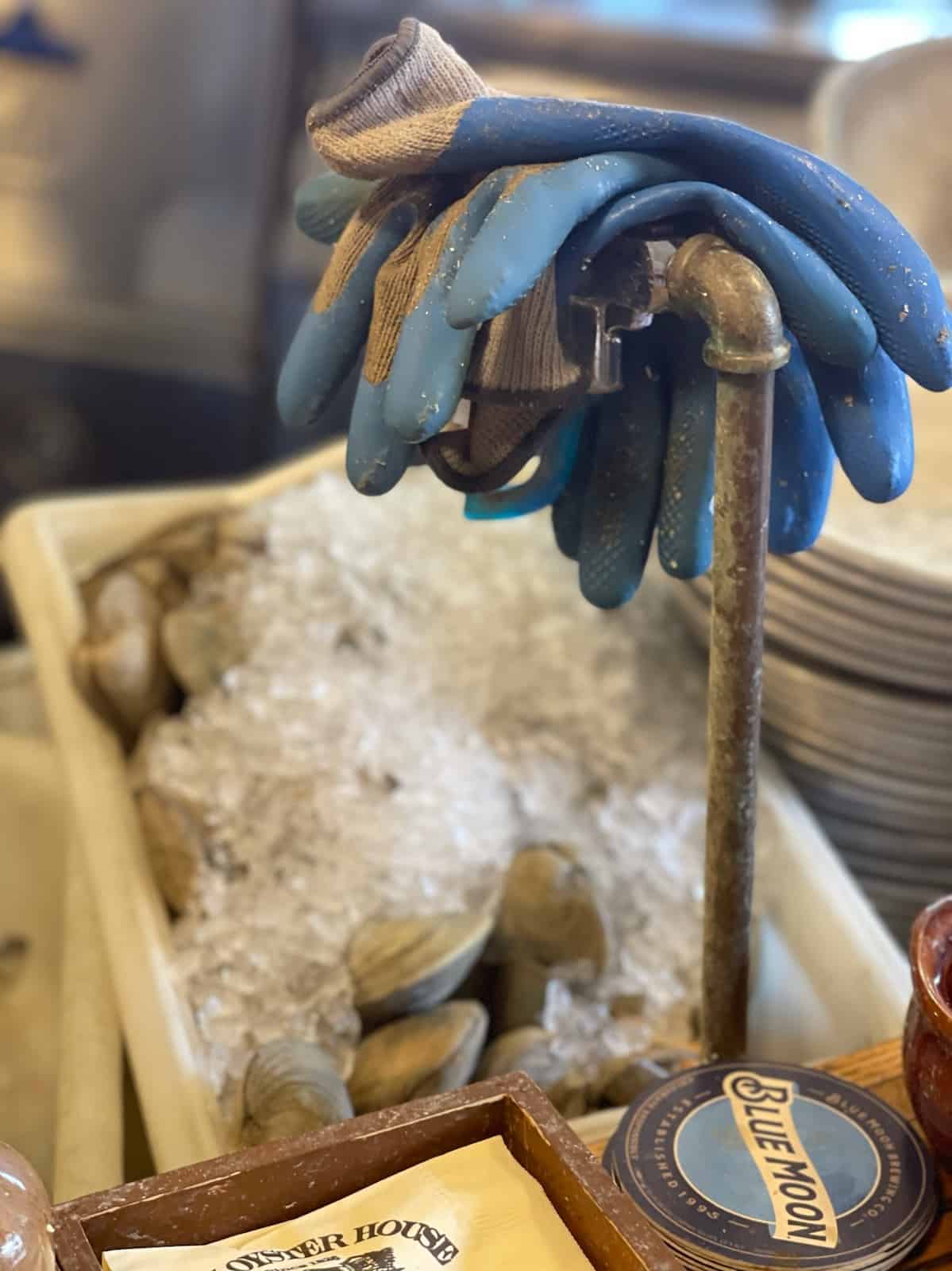Butterfield Shellfish breeds innovation and healthy mariculture.
Oysters are remarkable creatures. Clustered on top of one another, Butterfield Shellfish’s oysters sway through the crisp, clear waters of Casco Bay off the coast of Maine. Nestled in constantly moving water, these shellfish grow rounded, white/gray, craggy shells while the interior meat plumps to an opalescent mound of briny, fresh flavor. All the while each one is doing significant environmental work.
Eastern oysters (crassostrea virginica) filter approximately 50 gallons of water per day, all the while removing particulates from water as they grow, benefitting the entire ecosystem of the oyster’s habitat allowing other desirable flora and fauna to thrive. Plus, oyster shells absorb CO2, which can affect the ocean’s acidity. Oysters are unquestionably one of the most sustainable food choices that can be harvested from the sea. Unlike some types of seafood farming, an oyster farm like this brings all kinds of benefits to its mariculture.
Between Little Moshier and Moshier Islands, long lines of oyster crates are strung through the water. Butterfield Shellfish’s oysters are raised with a semi-automated flip crate system. To keep the oysters growing at a consistent rate, the long lines are pulled and flipped with the help of a machine, saving workers the arduous and sometimes dangerous task of flipping each basket by hand.
This is just one way that the farm cares for its workers in addition to the environment. With each flip, the oysters are freed from barnacles and seaweed. In the process their shells strengthen and a deep cup is formed, creating plump perfection inside. When the shells reach three inches in size, they’re ready to harvest. The baskets are then flipped up and into the boats and whisked away.
Initially, growing oysters was a hobby interest for founder Keith Butterfield that he did with the help of his father. The business was founded on his hope to build protected oyster reefs in Casco Bay. At its foundation, his farm is built upon a dedication to caring for the environment as well as its workers. Now, Keith advocates for sustainable farming, sharing his knowledge and experience across the country as an expert in his field.
